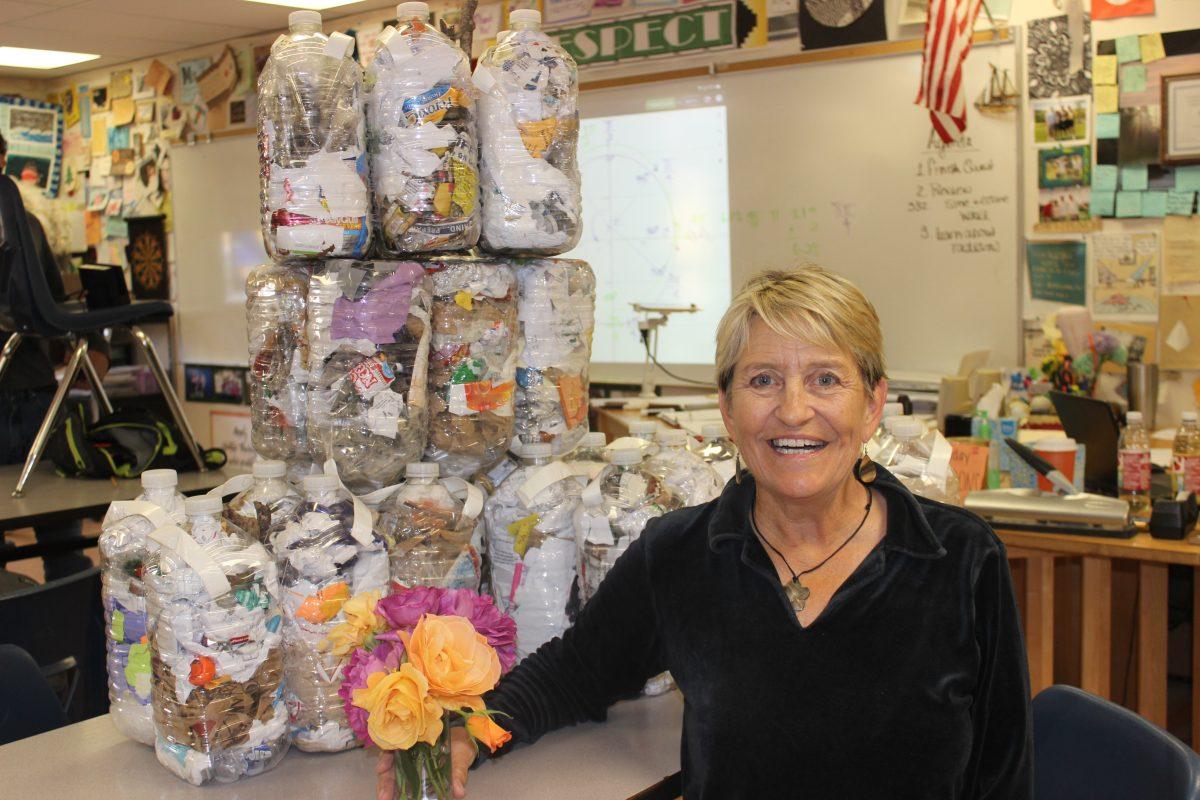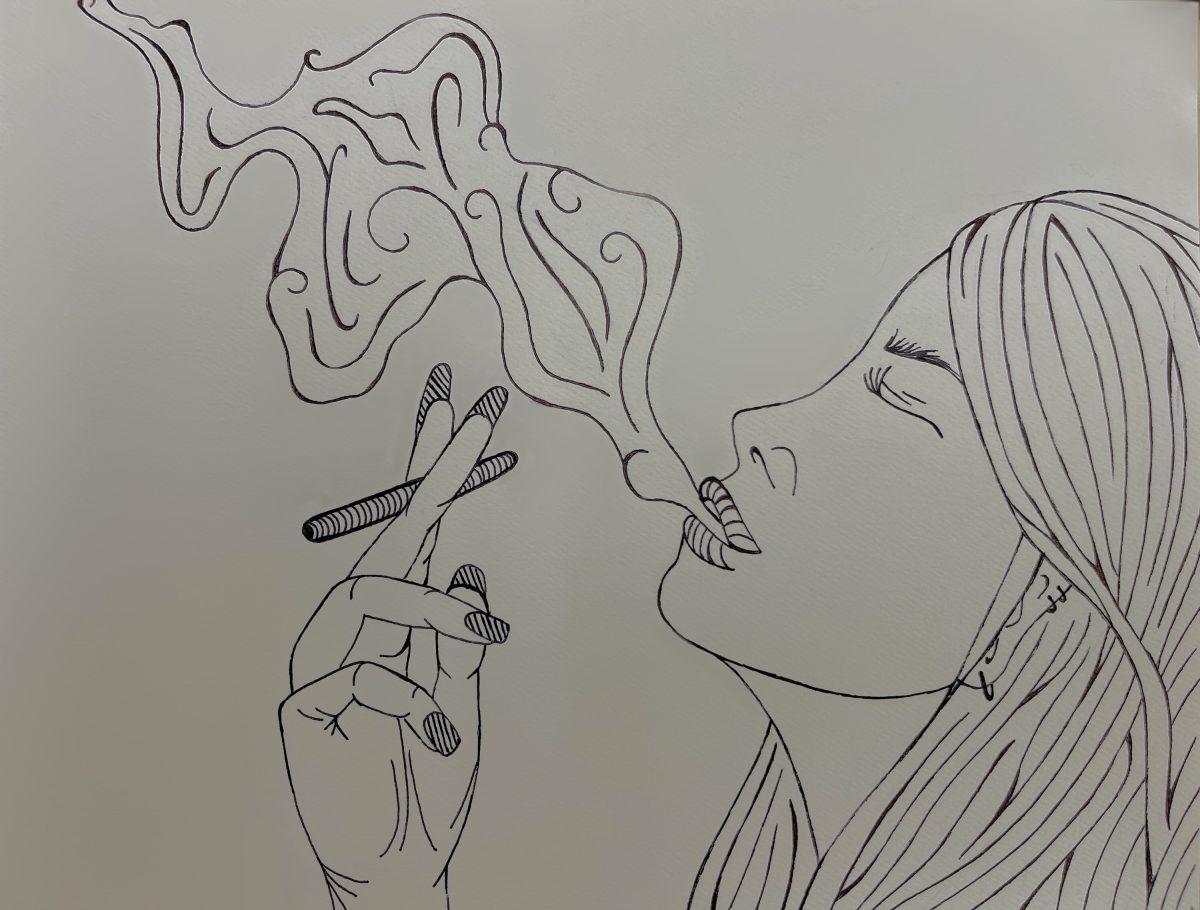Last summer, math teacher Susan Taggard attended a class at Sonoma State University called Teaching vs. Sustainability. During the class, another teacher shared the idea of eco-bricks, which inspired Taggard to integrate the idea within her own classroom.
Eco-bricks are plastic water bottles that are packed full of trash and used to create sturdy building blocks. Especially in developing countries, people stack up eco-bricks and mold adobe around them to create homes. These bricks can also be used to make benches and planting pots. Climate change studies show that the Earth will not be able to sustain the population of the planet in 12 more years, and people hope these eco-bricks will help to solve this problem.
Taggard started carrying out this idea last school year by having some of her students collect their trash for the weekend to see how much waste a person generates within two days. Many of the students showed up to class with a whole new perspective on how much waste they had produced.
“After making my first ecobrick, I realized it was so easy to save trash and not litter or to help clean up a place,” senior Courtney Rodriggs said. “It really helped me believe that I can actually make a difference in the issue of trash and plastic.” Rodriggs has been creating eco-bricks this school year after the introduction from Taggard.
“Ms. Taggard is a very persuasive teacher and she can get you to start making the ecobricks quickly,” Rodriggs said. “The difficult part is to keep using them.” Rodriggs and Taggard are trying to get more people involved although it is hard for most people to change the way they recycle their waste.
According to research done by Zero Waste, each American generates around 4.6 pounds of trash per day, totalling 250 million tons of trash every year from the United States alone. With eco-bricks, the trash is being used for beneficial resources.
“This is so much bigger than an eco-brick,” Taggard said. “The idea was to try and create awareness for a zero waste school.” Eco-bricks last for 300 to 500 years, so they provide generations of families with the chance to live in a home made from eco-bricks. These plastic bottles are purely filled with trash and not recyclables because they are reusable. Anything can be tightly packed into these bottles except for paper, napkins and food because these could contribute to mold that could potentially grow inside of the eco-brick.
“I want kids to be excited about trying to make change,” Taggard said. “A little bit at a time is the key.”
As for future goals, Taggard and Rodriggs said they would love to have some of the eco-bricks made into portable benches that could potentially be put in Ben’s garden, or put soil in the bottles and have plants grow right out of the plastic.
“I am scared for the future, but I believe we will find a way to either make life sustainable on Earth, or otherwise, we will try to find another solution like traveling to Mars and colonizing it,” Rodriggs said.






































